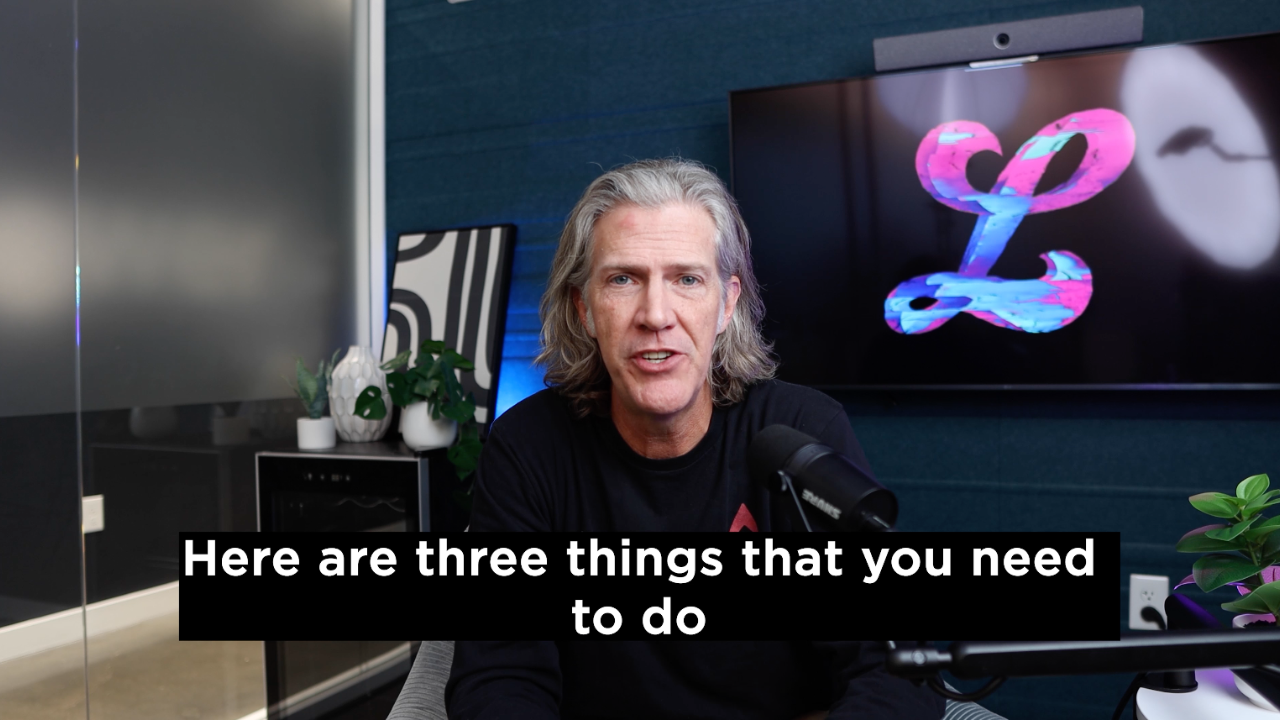First thing's first. What impacts mortgage interest rates?
Interest rates are calculated based on a variety of factors—some of which are impacted by national trends, and others that you can control. Understanding what factors affect mortgage rates can help you know when to buy, while knowing what you can do to improve your finances will help you get the lowest rate possible.
Inflation
In the world of homebuying, inflation (or a decrease in the purchasing value of money) has a significant impact on mortgage rates.
One reason for this is the typical length of a home mortgage. Thirty years is the most common timeframe for repaying these large loans. When setting rates, lenders predict what they expect to happen with the rate of inflation over many years. If inflation is up, you’re likely going to have higher rates.
The Economy
The state of the national economy can play a big role in mortgage rates.
Lenders expect that high levels of economic growth and low unemployment rates will produce higher average incomes. They also assume that these higher incomes will mean more people looking for mortgages. That’s why economic growth can sometimes cause a rise in interest rates. When the economy is doing well, lenders have more loan requests and, as a result, less money to lend out.
A weak economy, on the other hand, usually means lower mortgage rates. When employment and income are on a downward slope, lenders drop mortgage rates to attract more buyers.
Federal Reserve Policies
You might hear about the Federal Reserve System, or "the Fed," in discussions about mortgage interest rates.
The Fed controls the supply of money flowing through the economy The agency makes constant adjustments to the money supply to keep inflation under control and maintain the value of the US dollar.
The Fed does not directly set mortgage interest rates, but their decisions can impact the economy, and by extension, mortgage rates. To put it simply, when the Fed tightens the supply of money they release to banks, rates go up, and vice versa.
Bond Market
You don’t need to be a bond market expert to get a good home mortgage rate, but it's good to understand some basic facts about it.
In the bond market, banks and investment firms sell mortgage-backed securities (MBSs) as investment products. The potential yields, or payouts, from these investments must be high enough to attract buyers.
The bond market's overall condition indirectly impacts mortgage rates, because lenders have to generate sufficient MBS yields to remain competitive in the securities market. When yields are low, mortgage rates rise. Lenders often look toward the 10-year treasury bond yield when establishing mortgage rates.
Housing Market
When fewer homes are being built or when fewer people are selling their homes, interest rates go down. The reverse is also true: when there is a surplus of homes, interest rates will fall to try to entice more homebuyers into the market.
Loan Type
When you begin to compare mortgage loan types, you'll see a significant difference in expected interest rates. In general, the best rates are prime rates on conventional loans.
If you don't have a high enough credit score or a strong enough financial profile, specialized, government-insured loans, like FHA, VA and USDA loans, can be a good alternative. These loans are easier to obtain if you have a lower credit score or higher debt-to-income ratio, however, they can come with higher interest rates.
Lender Selection
Mortgage rates vary between lenders. Here at Lower, we’ve made comparing rates easy—just check out Lower.com to see our average rate (updated daily) along with how we compare to the Bankrate national average, and other top companies.
Your Financial Profile
This is it. The mortgage rate factor you have the most control over is (drumroll) your finances. When you have a steady income, good payment history with other creditors, and low amounts of debt, you’ll qualify for better rates. If you want to get a good idea of where you stand and where you can improve to qualify for a better rate, just get in touch.
The rate factor you have the most control over is your finances. Less debt, more income and a larger down payment can make a world of difference.
Tips for Finding Lower Mortgage Rates
Sure, there are some factors that impact mortgage rates that are beyond your control. You can't personally do much to change inflation rates or convince the Fed to keep rates low. (We wish!)
There are still several things you can do to find and qualify for the lowest rate possible for your specific situation. Putting in the work can pay off significantly over the lifetime of your loan.
You can't control factors like economic growth or the condition of the housing market, but you can decide certain things, like when to buy.
1. Compare rates.
You want to find a lower rate, so we’ve put together this rate comparison chart as an excellent place to start.
2. Repair your credit.
The Federal Trade Commission reports that one in five people have an error on at least one of their credit reports. Usually, these mistakes are easy to fix. That’s good news, because your credit score is a major factor in determining your rate. You can also reach out to creditors and ask them to remove old late payments and credit lines. A loan advisor can pull your credit report and walk you through any issues they may find—just get in touch.
3. Increase your down payment.
Down payment, interest rate and monthly mortgage payment. They’re all connected. One of the simplest ways to get a lower mortgage rate is to increase your down payment. A higher down payment shows you are more likely to be able to pay your loan back. So you get a deal in return.
Government-insured loans (like FHA, VA, and USDA loans) allow you to make a very low down payment—as low as zero-down for some loans. However, there is still a price. Having a small down payment will most likely require you to pay mortgage insurance each month, on top of interest. Many homebuyers have chosen the mortgage insurance route. According to U.S. Mortgage Insurers, over 30 million families have opted for a lower down payment accompanied by mortgage insurance.
4. Look into reducing your debt-to-income ratio. (aka: Pay off debts.)
This is one of the most important factors to getting lower rates. Debt-to-income ratio, or simply DTI, is the comparison of how much you pay toward debts (like credit cards and car payments) per month to how much you earn per month. Reducing your DTI means you could be better off using some of your savings to pay off a debt rather than making a larger down payment. However, in some circumstances, paying off debt may not be the best choice. It’s all about balance—and you’ll want to speak to a loan advisor before you pay off any debts. We’re Lower and we’re here to help.
5. Establish a steady income and payment pattern.
Stability is an essential consideration for mortgage providers. You're likely to find better rates if you've consistently held the same job or worked in the same field for at least a few years. The longer you’ve worked in your field, at the same job, the more stable your income.
The same is true of paying bills, beyond what you pay creditors each month. Your credit rating will take a hit if you’ve had a utility bill go into collections or if you have been evicted from a rental for non-payment.
6. Consider your timing, but don't wait too long.
You can't control factors like economic growth or the condition of the housing market, but you can decide when to buy. Unless you need to buy a home immediately when rates are at all-time highs, it could save you tens of thousands to purchase a home when rates are lower than average. As of this writing, mortgage rates are at all-time lows.
It's also important to note that waiting for the perfect rate may not be a great decision. For one, just as rates can fall, they can also rise. So even if rates are "just okay" it may be still worth it to buy. When it comes to building equity, the best time to start is today.
Check out today's rates here.
7. Choose a shorter repayment period.
If you can afford a higher monthly payment, take a look at the difference in the total interest you would pay over the course of a 30-year versus a 15-year loan. Depending on the purchase price, you could, again, save tens of thousands of dollars.
8. Buy points.
Buying points to lower your interest rate can be a great option in some situations. By buying points, you are basically paying an upfront cost to reduce your interest rate over the long term, therefore lowering your monthly payment. If you can recoup your initial cost to “buy down” the rate in a reasonable time frame, it's a great option. Speaking with a loan advisor can help you determine what your break-even will be and if buying points is an advantage for you.
9. Plan to refinance later.
If you are experiencing financial difficulties right now but expect to recover over the next few years, you could take a less-than-stellar rate, then refinance when your bank account is in better shape. This is a gamble though, as there's no guarantee where rates will be, or you'll qualify for refinancing later. But when done successfully, planning to refinance can be a great cost-saving option.
Go Forth—Get Your Lower Rate
As you can see, there are a lot of factors that go into your mortgage rate. By understanding the market and working to get your finances in shape, you're improving your chances of getting a lower rate.
Here at Lower, we make getting a lower rate easy.

















.svg)

.svg)















